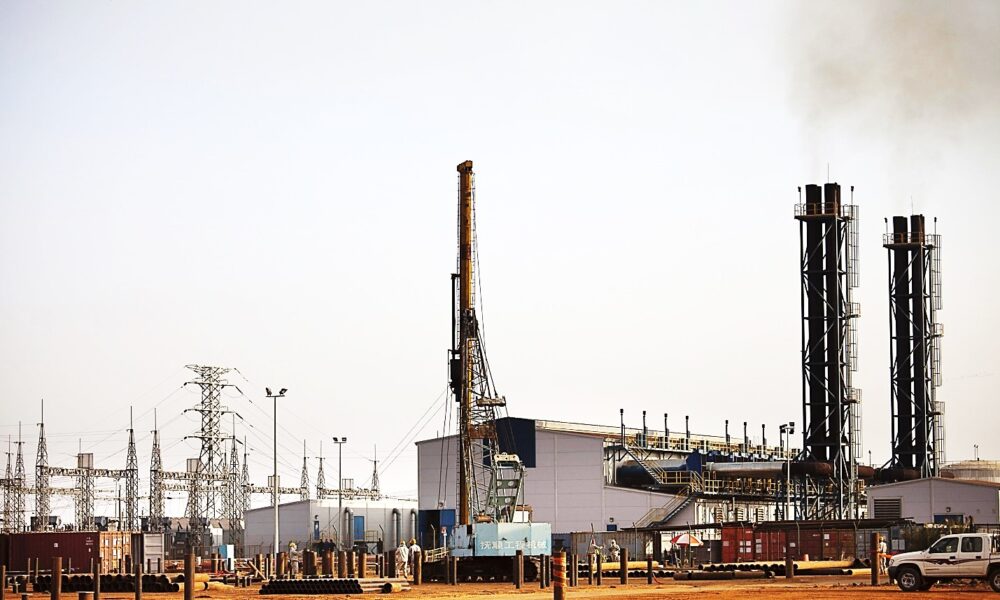By William Madouk
Presidency and the national parliament must develop a comprehensive response plan for impending economic crisis following challenges in South Sudan’s oil flow.
Chairperson of a standing committee on petroleum in the national assembly, Eng. Boutros Magaya made the suggestion after Sudan admitted that it cannot guarantee the smooth export of oil from South Sudan.
Sudan war has made it difficult to maintain or even protect the pipeline to Port Sudan.
According to Eng. Magaya, the implications of the shutdown of the oil pipeline are vast, far-reaching, and have severe consequences for the country.
“Our country heavily relies on revenue from petroleum exports, which account for approximately 90% of our national income,” said Magaya.
He added that each day of oil cessation could lead to losses of 105,000 barrels, which is equivalent to $100 million dollars.
“This will result in significant losses of income, an increase in market prices, fuel shortages, prolonged power outages, disruptions in transportation, and other essential services that are vital for the well-being of our citizens,” he noted.
Eng. Magaya noted that disruption of oil flow is a direct attack on economic lifelines and poses a threat to peace and stability, adding that the president must conduct a meeting with stakeholders to find an instant solution.
“This may require the H.E. President to form a special task force or think tank of experts and technocrats dedicated to addressing the crises caused by the oil shut down/force majeure as well as economic crises,” he echoed.
MP Magaya, who is also head of the subcommittee at the Ministry of Petroleum and the National Oil and Gas Commission, stated that parliament should call off the recess to come and discuss this urgent matter as well as provide oversight and guidance at this trying time.
Furthermore, he advised the government to engage in high-level diplomatic talks with Sudanese parties to address the root causes of force majeure and find peace in sisterly Sudan. Again, he called for reform in the oil and gas sector.
“The oil sector has been underperforming and underdeveloped since independence. Numerous reports confirm that at least 80% of workforces, including senior personnel, are not qualified enough with limited technical expertise,” he cited.
“The failure to develop refineries, oil infrastructure, and alternative transport infrastructure is a clear indication of a lack of vision and limited expertise,” he continued.
What happen?
Early this month, Sudan’s Minister of Energy and Petroleum, Dr. Mohieldin Nam Mohamed Said, wrote a letter on March 16 to major companies involved in oil production in South Sudan, admitting that the war had made it difficult to provide such guarantees.
He acknowledged that the conflict was hampering the flow of oil to Port Sudan, as it took time to repair pipelines that ruptured during the fighting.
In addition, there have been problems with telecommunications between the pumping stations (PS4) and PS5 in Sudan, which were shut down in the midst of heavy fighting.
“As such, the Government of Sudan declares a state of force majeure, which prevents us from fulfilling our obligations in the delivery of crude oil and through the Bapco transportation system to the Bashayer 2 Maritime Terminal. We remain suspended to restore the BPCO transportation system to operational mode and will be duly updated of any developments,” the letter said.
There was also a major rupture 18 kilometers north of PS3, which is also a military operation area. “Teams were mobilized to the area to repair the rupture and were only able to commence repairs after security clearance was obtained,” the minister said in the letter.
On February 10, the South Sudanese government reported that the war had slowed the flow due to a lack of diesel supply to PS4, which is needed to heat the crude oil to prevent it from gelling.
The government said the low temperature in the area in the preceding days was 15 degrees Celsius, indicating a lower ground temperature, which increased the risk of gelling.
The minister says mud pumps received from the DAR Petroleum Operating Company (DPOC in South Sudan) have been sent to the area between PS4 and PS5 to pump the crude.
The other challenge, however, is that there is a significant amount of cold crude that is stuck in the transportation system and needs to be heated to allow more flow.
The war in Sudan adds to the challenges South Sudan faces in maximizing its only major resource, oil, to fund government and other operations.
South Sudan’s oil production fell from 160,000 barrels per day in 2022 to 140,000 barrels per day in 2023.
This is a far cry from the previous peak of 350,000 barrels per day before the civil war broke out in 2013.
The letter was addressed to China National Petroleum Corp. (CNPC) Director Dr. Wangi Guolin, China Petroleum and Chemical Corporation, International Exploration and Production Corporation, Director Martin Jiambo, Petronas Director Mai Gadalla, and SSTO Egypt Managing Director Hassan Maselhy.




